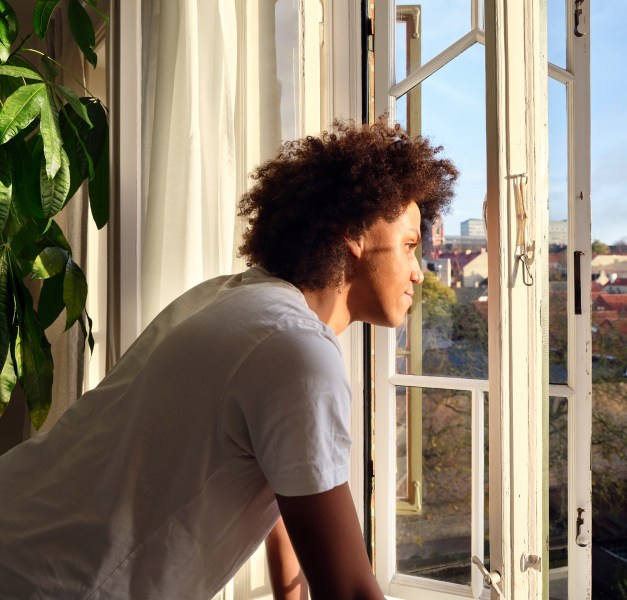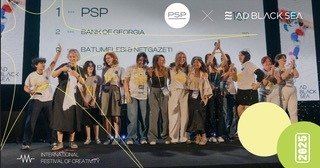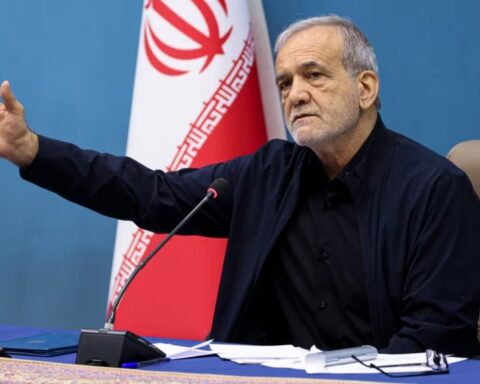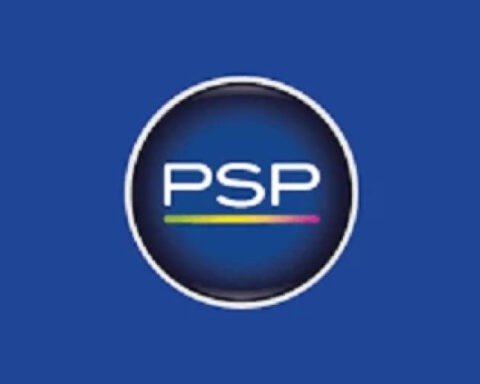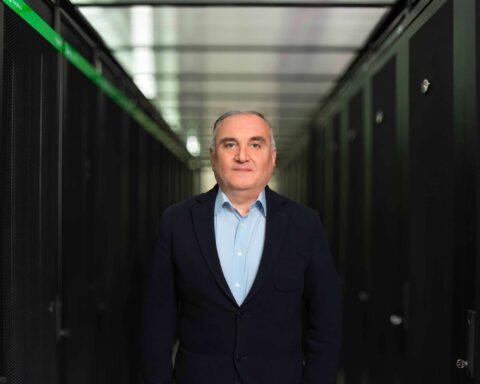The financial year 2022 (FY22)* was another year of global challenges, but also of important achievements towards meeting the IKEA sustainability commitments for 2030. Key movements include a 12% reduction of the total IKEA climate footprint in absolute terms and a 20% decrease in relative terms** compared to baseline year FY16, a significant increase in renewable energy in both retail and production, and one of the first corporate disclosures of outdoor air pollution generated across a value chain.
The IKEA Sustainability Report FY22 and the IKEA Climate Report FY22 are issued by Inter IKEA Group and cover the collective efforts from the contributors in the IKEA franchise system and value chain.
The IKEA climate footprint in FY22 is estimated to be 25.8 million tonnes of CO2 eq – a decrease in absolute terms of 5% compared to last year, and 12% compared to baseline year FY16. The continued reduction is mainly due to an increased share of renewable energy in both retail and production, and a more energy-efficient range, particularly through the SOLHETTA LED bulbs.
“With six years of CO2 budget left in the world to limit global warming to 1.5°C, the need to act is more important than ever. We are committed to doing our part, taking a full value chain approach, working towards becoming climate positive and securing a just transition. We strive to take a holistic approach to our sustainability work, as climate change, nature loss and inequality are interdependent”, says Jon Abrahamsson Ring, CEO, Inter IKEA Group.
Highlights from the financial year 2022 include:
- Increasing the share of renewable electricity in IKEA retail and other operations*** to 76% compared to 71% in FY21. In FY22, 24 IKEA retail markets are consuming 100% renewable electricity.
- Increasing the share of renewable electricity in production to 64% compared to 52% in FY21. The increase in China was largely driven by the programme launched in FY21 to enable suppliers to purchase renewable electricity. During FY23, the programme will be rolled out to ten additional markets including Germany, Türkiye, and Sweden.
- Being one of the first businesses to disclose an outdoor air pollution footprint across a value chain.
- Expanding the more energy-efficient LED bulb range SOLHETTA – a key enabler in reducing the climate footprint of product use at home, which was reduced by 20% in FY22 compared to FY21.
- Seeing a continued increase in the sales share of our plant-based food options, such as the plant ball and the veggie hotdog.
- Going from piloting to developing a global offer that will make it easier for customers to prolong the lifespan of IKEA products.
- Strengthening the IKEA social commitments in the sustainability strategy to address increasing inequality in the world. The revision includes strengthened commitments to contribute to more resilient societies with a continued focus on children as a particularly vulnerable group, and new commitments such as ensuring a just transition with a focus on enabling decent work.
“Every year, more than 2.4 billion people are exposed to dangerous levels of air pollution. There is a strong synergy between reducing GHG emissions and air pollution. With this report, we are taking the lead by being one of the first to disclose the air pollution generated across our value chain. Even though more work is needed, we hope that by transparently sharing our findings, we inspire other companies to also address air pollution while taking climate action”, says Andreas Rangel Ahrens, Head of Climate, Inter IKEA Group.
The IKEA People & Planet Positive sustainability strategy outlines the ambitions and commitments, creating a common agenda towards 2030. More examples of progress are to be found in the IKEA Sustainability Report FY22 and the IKEA Climate Report FY22. These reports show progress from across the entire IKEA value chain, including Inter IKEA Group, the 12 franchisees and the many suppliers. Each part of the IKEA business sets goals and road maps to deliver on the strategy and to allow for locally tailored and relevant activities.
*FY22 is the period from 1 September 2021 to 31 August 2022.
**Relative climate footprint in terms of produced volume: tonnes CO2 eq per produced volume (m3) of IKEA products.
***Includes IKEA stores and other customer meeting points in IKEA retail, as well as distribution centres, offices, etc. under the IKEA Brand.
About IKEA
IKEA offers well-designed, functional, and affordable, high-quality home furnishing, produced with care for people and the environment. There are several companies with different owners, working under the IKEA Brand, all sharing the same vision: to create a better everyday life for the many people. IKEA was founded in Sweden in 1943.
About the IKEA franchise system
The IKEA retail business is operated through a franchise system with franchisees that are authorised to market and sell the IKEA product range within specified geographical territories. Inter IKEA Systems B.V. is the owner of the IKEA Concept and worldwide IKEA franchisor, who also assigns different IKEA companies to develop the product range, supply products and deliver communication solutions. Today, 12 different groups of companies have the right to own and operate IKEA sales channels under franchise agreements with Inter IKEA Systems BV.




